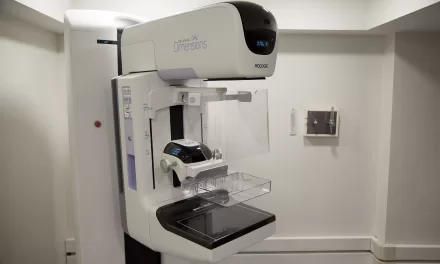A Breakthrough in Rare Disease Treatment: Artificial Intelligence Saves Life of iMCD Patient
A groundbreaking study led by researchers at the Perelman School of Medicine, University of Pennsylvania, has unveiled how artificial intelligence (AI) can help find life-saving treatments for rare diseases. The case involves a patient suffering from Idiopathic Multicentric Castleman’s Disease (iMCD), a rare and aggressive condition that typically has a poor survival rate and limited treatment options. After combing through 4,000 existing medications, an AI tool helped uncover a treatment that brought the patient from the brink of hospice care into remission.
The drug in question is adalimumab, a monoclonal antibody that is FDA-approved for treating conditions like arthritis and Crohn’s disease. The study, published in the New England Journal of Medicine, revealed that adalimumab could be the “top-predicted” new treatment for iMCD, a discovery made possible through the application of machine learning.
The research team, led by Dr. David Fajgenbaum and Dr. Luke Chen, found that elevated levels of tumor necrosis factor (TNF) were present in patients with severe forms of iMCD. TNF plays a critical role in the disease’s progression, and adalimumab works by inhibiting this protein. Experiments confirmed the drug’s effectiveness, leading the team to administer adalimumab to their patient. Remarkably, the patient, who had been near hospice care, is now almost two years into remission.
“This patient’s recovery is not only a remarkable achievement for iMCD treatment but also a game-changer for how AI can be used to find solutions for rare and complex conditions,” said Dr. Fajgenbaum, who co-founded the non-profit Every Cure to harness AI for uncovering repurposed treatments. Fajgenbaum himself suffers from iMCD and was inspired by his own life-saving, repurposed treatment discovered years ago.
The study’s success demonstrates the potential of AI-powered drug repurposing, where existing medications are tested for new uses. AI’s ability to analyze vast amounts of data from various diseases allows for the identification of common underlying biological mechanisms, offering new treatment possibilities for patients suffering from rare and severe conditions.
The findings are not only significant for iMCD but also highlight the potential of AI in rare disease treatment across the globe. While iMCD is diagnosed in approximately 5,000 patients annually in the United States, there are thousands more worldwide who could benefit from AI-driven drug discoveries. The study suggests that many patients with severe flare-ups of iMCD may now have hope for treatment through adalimumab or other AI-predicted therapies.
Looking ahead, Dr. Fajgenbaum and his team are preparing to launch a clinical trial later this year to test the effectiveness of another repurposed drug, a JAK1/2 inhibitor, in treating iMCD. They hope to expand their research and demonstrate the potential of AI in revolutionizing medicine for rare diseases.
Disclaimer: The results of this study are preliminary, and further research and clinical trials are required to validate the efficacy of adalimumab and other repurposed treatments for iMCD and other rare diseases. Always consult with a healthcare provider before starting or changing any treatment regimen.











